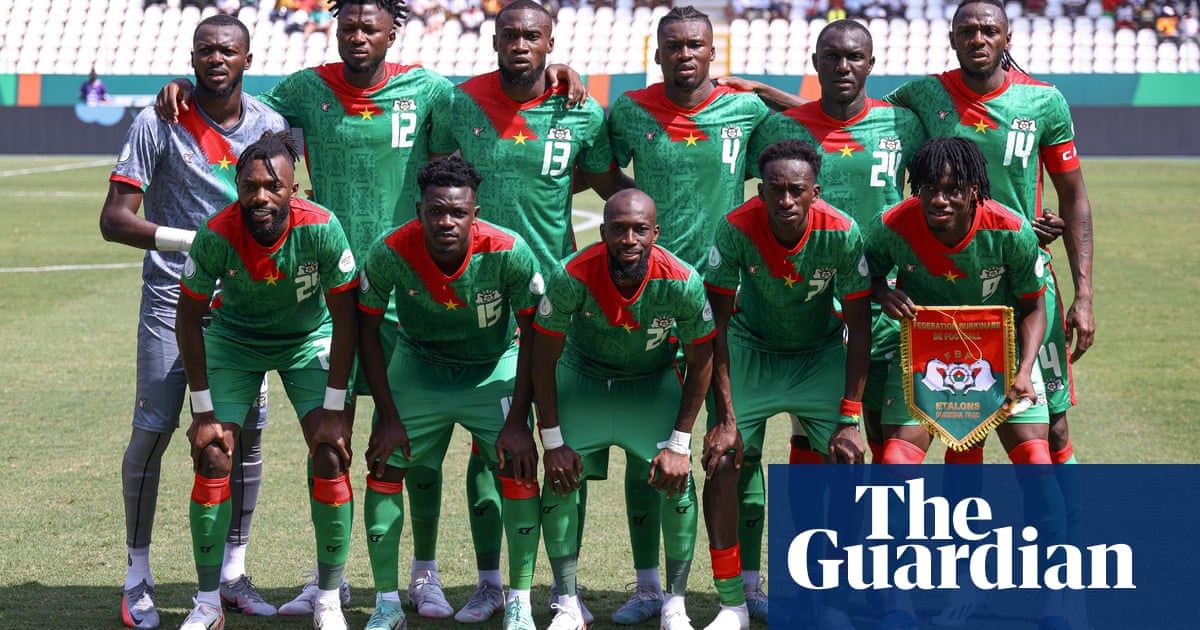
“Has an international tournament penalty shootout ever ended before when a team has only taken three kicks?” tweets Tim Robinson.
Tim is referring to Slovenia’s miserable penalty shootout defeat to Portugal on Monday, when they missed all three kicks. Portugal scored theirs, which meant it was all over after six kicks – the shortest possible penalty shootout.
There have been quite a few examples of penalty competitions at major tournaments where one team has taken only three kicks, but in the majority of cases the other team took four. Let’s start with the only previous instance at the men’s Euros, when Turkey beat Croatia in the 2008 quarter-final. Croatia went first, but Luka Modric, Ivan Rakitic and Mladen Petrić all missed. Turkey scored all three of theirs and went through with two kicks to spare.
In the only case at the women’s Euros, it was the winning team who took four penalties: Denmark beat Austria 3-0 in the 2017 semi-final.
In all three cases at the World Cup – two men’s, one women’s – it was the winning team who took four penalties. West Germany beat the hosts Mexico 4-1 in 1986, when some of the penalties were pretty wretched. The same thing happened in 2019 when Norway eliminated Australia, with Sam Kerr one of two Australian players to miss.
At least Australia got on the board though. Spain missed all three of theirs when they lost 3-0 to Morocco in the 2022 quarter-final in Qatar, as did Switzerland against Ukraine in 2006. You’re forgiven for forgetting that one, given the preceding 120 minutes are still used as a form of torture in some places.
There have been a few seven-kick shootouts in the men’s Copa América. Mexico were again beaten 4-1 in 1995, this time by the USA, while Paraguay’s unforgettable crawl to the 2011 final included a quarter-final win in which Brazil missed all four of their penalties.
Four years later, Argentina’s glory drought continued when they lost 4-1 on penalties to Chile in the final. Lionel Messi scored their first kick, but Gonzalo Higuaín and Éver Banega both missed.
There are at least four examples at the men’s Afcon, the most recent in 2021: Egypt needed only three kicks to beat Cameroon in the semi-final.
We’ve been able to find only two previous six-kick shootouts at major tournaments. Iran beat China 3-0 in the third-place playoff at the 1988 AFC Asian Cup, and Chile did likewise to Portugal in the semi-final of the 2017 Confederations Cup. Cristiano Ronaldo – who would have taken the fourth or fifth penalty – and Bernardo Silva were involved in that game, so they have a vague idea how Slovenia felt.
Goal-shy teams who topped their group
“England topped their group at Euro 2024 with five points (one win, two draws), having scored only two goals in the entire group stage. Has any team ever topped a four-team group at a major tournament having scored only one goal (1-0, 0-0, 0-0 = five points)?” asks Dennis Crawford.
England have form in this department, having topped their group at Euro 2020 despite scoring only two goals in three games, though on that occasion they picked up seven points. The only other side to do it in the European Championship is the Sweden women’s team at Euro 2005.
England pulled the same stunt at Italia 90, when they drew 1-1 with the Republic of Ireland and 0-0 with the Netherlands before beating Egypt 1-0. Three other sides have topped a World Cup group, men’s or women’s, while scoring only two goals: Northern Ireland in 1982, Canada in 2015 and Switzerland in 2023.
Only one team has finished top while scoring a single goal, and you’ll never guess who it was. Angelo Domenghini gave Italy the lead against Sweden after 10 minutes of the 1970 World Cup campaign, and that was enough of that nonsense. They beat Sweden 1-0 and drew 0-0 with Uruguay and Israel to top the group.
Before we get too carried away with the Azzurri stereotypes, the same team then went on a goals bonanza in the knockout rounds. They smashed the hosts Mexico 4-1 in the quarter-final, edged West Germany 4-3 in an extraordinary semi-final and were eviscerated 4-1 by Brazil in the final. Their first three games produced one goal; the last three yielded 17. Aren’t tournaments supposed to get more cagey in the knockout round?
Cards deciding groups and other tie-breakers
“Denmark finished above Slovenia in the Group C standings because of a yellow card that was awarded to the Slovenia assistant coach Milivoje Novaković . Has the standing in a group stage of a major tournament ever been determined by finer margins?” asks Jack Moss
We don’t know whether there are lots of answers to this one, but there is definitely an answer about lots. At Italia 90, the Republic of Ireland and the Netherlands had identical records in Group F: P3 W0 D3 L0 F2 A2 Pts3.
After two games all four teams had identical records. The Times reported that “the organisers have been taken unawares by the unlikely sequence of results. The circumstances were considered so unlikely that no plan has been formed.”
Had Egypt equalised in their final game against England – and Magdi Abdelghani had an excellent chance to do so – the entire group would have been decided by drawing lots. Instead it was second and third place, with Sepp Blatter doing the draw around 15 minutes after the Group F matches had finished. Ireland came second, which meant they played Romania in the last 16. The Netherlands were sent to Milan, where they were beaten by the eventual champions West Germany.
Fifa eventually introduced a fair play tiebreaker in 2018, when Japan and Senegal finished level on points, wins, goal difference and goals scored. But Japan received only four yellow cards to Senegal’s six, so they went through the next round.
Had that playing condition been in place in 1990, Ireland would still have finished second as they received only one yellow card in the group stage to the Netherlands’ two.
Knowledge archive
“I’ve just been Wiki-surfing,” wrote Simon Cornwall in 2008 “and read on Peter Beardsley’s page that he once scored four goals for England against Aylesbury United. Can anyone shed any light on when this game was played, why it was played, and if there have been any other similar friendlies?”
Picture the scene: it’s eight days before Bobby Robson’s England are due to run out at the Neckarstadion in Stuttgart for their opening match of the 1988 European Championship. You haven’t lost an international since September 1987 and things are looking good. So who have you chosen for your final warmup game?
Aylesbury? On June 4 1988 England completed their Euro 88 preparations against the reigning Beazer Homes League Premier Division champions Aylesbury United in front of 6,031 at Buckingham Road. Beardsley did indeed net four goals in England’s 7-0 thrashing of the Ducks, not that it did much good; England lost to Ray Houghton’s goal against the Irish. Then lost to Netherlands. Then lost to the USSR. And then came home.
Aylesbury United remain the only non-league side to face the national team, but there have been other similar friendlies. On June 9 1998 England played a Caen XI in a behind-closed-doors friendly prior to the World Cup, with Paul Scholes scoring in a 1-0 win. Bradford City were beaten 2-1 by an England side in December 1986 in a match to celebrate the reopening of Valley Parade following the fire in May 1985. And an FA XI - effectively the England team of the day - faced Bill Nicholson’s double-winning Tottenham Hotspur side in the Charity Shield in August 1961. Spurs won 3-2.
2024 update: if we look at other national teams warming up against non-league clubs then Czech Republic’s 9-1 thrashing of Bamber Bridge at Irongate is also worth a mention.
Can you help?
“There’s a clutch of players still involved in the last 16 of the Euros whose clubs are involved in the first qualifying round of the Champions League on 10 July. If they reach the semi-finals, they’ll need to be in two places at once. Has there ever been an instance of a player still involved in the Euros who has been unable to play for their club in their opening Champions League game?” wonders Jim Chapman.
“If Holland & Austria win their respective 2nd round games, they’ll play each other in the QFs, having already met two games earlier in the group stage. I know that teams often play each other twice at tournaments, but has it happened so soon (excluding playoffs)?” asks Alastair Horne.
“Australia’s record when failing to qualify for the 1998 World Cup were P8 W6 D2 L0 GD +29 (comprising a four-game group qualification followed by home and away knockout rounds against New Zealand and Iran). They were ultimately eliminated on the away goals rule after drawing with Iran 1-1 away and 2-2 at home. Iran’s record in succeeding with qualification was much less impressive: P11 W4 D5 L2 GD +6. Has any team ever failed to qualify for a tournament after a more dominant display in the qualifying rounds? Also, has another team ever failed to qualify for a major tournament without losing a single match in qualification?” asks Justin Rigden.












